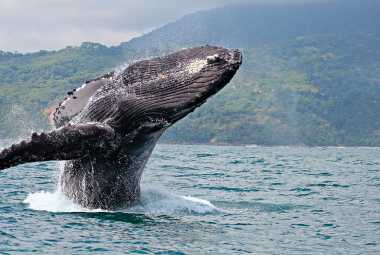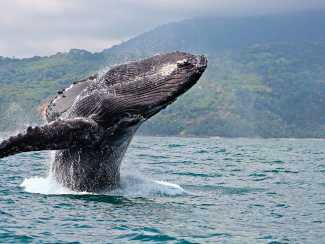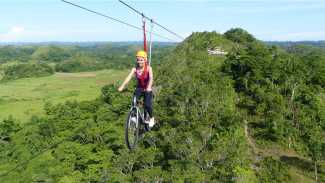The COVID-19 pandemic has had a significant impact on domestic travel, as it has on so many other aspects of travel. Due to constantly changing restrictions and guidelines, many travelers are unsure of how to travel between states and what will be expected of them once they reach their destination.
Since the spring and early summer of 2021, almost all travel restrictions between states in the United States have been lifted. We are now well into the peak travel season for the fall, and the Delta variant wave has begun to subside in some of the most hard-hit areas. Since the beginning of the pandemic, the total number of Covid-19 cases in the United States has reached approximately 43.7 million.
As of October 4, the Centers for Disease Control and Prevention (CDC) continued to advise against non-essential travel for people who have not received all of their vaccinations. According to the Centers for Disease Control and Prevention, fully vaccinated travelers are not required to self-quarantine and are not required to test negative before or after their travels unless the destination requires it.
They are still required to wear masks on public transportation and in transportation hubs such as airports, and they are strongly advised to do so in indoor public places where there is a high concentration of Covid transmission.
If you do decide to travel to another state or territory, you should still make sure you are up to date on the most recent local travel advice before you leave. Despite the fact that almost all states have lifted their travel restrictions, their official websites still contain vital Covid-19 safety information that you should be aware of, as well as the rules that you will be expected to follow. So, before embarking on your next road trip across the United States, review our travel restrictions guide to make sure you're aware of what you're getting yourself into.
States without travel restrictions
- Alabama
- Arizona
- Arkansas
- Colorado
- Connecticut
- Delaware
- Florida
- Georgia
- Idaho
- Indiana
- Iowa
- Louisiana
- Massachusetts
- Michigan
- Minnesota
- Mississippi
- Missouri
- Montana
- Nebraska
- Nevada
- New York
- North CarHawaiiolina
- North Dakota
- Oklahoma
- South Carolina
- South Dakota
- Tennessee
- Texas
- Utah
- Virginia
- West Virginia
- Wisconsin
- Wyoming
States with travel restrictions
- Alaska
- California
- District of Columbia
- Hawaii
- Idaho
- Illinois
- Kansas
- Kentucky
- Maine
- Maryland
- New Hampshire
- New Jersey
- New Mexico
- New York
- Ohio
- Oregon
- Pennsylvania
- Puerto Rico
- Rhode Island
- Vermont
- Washington
Alabama
As of December 17, there are no travel restrictions in place throughout the state of Alabama. We recommend that travelers continue to follow the Centers for Disease Control and Prevention's travel guidelines, as well as any mask requirements.
You can check here for the latest information and safety precautions.
Alaska

After the 14th of February in 2021, travelers and returning residents will no longer be required to show proof of a negative COVID-19 test result upon entry into the country. Anyone who tests positive, on the other hand, is still barred from traveling. Governor Dunleavy has issued new health advisories and guidelines for the general public.
Those traveling to the state should submit a Travel Declaration and Self-Isolation Plan and arrive with a negative molecular-based COVID-19 test, according to the Governor's updated guidelines, which were posted on the state's official Safe Travels website on March 12, 2021. Despite the relaxation of these restrictions, we still recommend that travelers adhere to the Centers for Disease Control and Prevention's quarantine guidelines, and we encourage them to get tested before traveling to Alaska. Beginning on June 1, all travelers arriving at one of Alaska's participating airports will be able to receive a free Covid-19 vaccine if they haven't already received one through the state's vaccination program.
You can check here for the latest information and safety precautions.
Arizona
As of December 17, there are no travel restrictions in the state of Arizona. Travelers should be aware that some restrictions may apply to Native American lands, which they should be aware of. It is possible that local restrictions and mask mandates will apply.
Information about Native American lands in the state can be found by clicking on this direct link.
You can check here for the latest information and safety precautions.
Arkansas
As of December 17, there are no state-wide travel restrictions in Arkansas. We recommend that travelers continue to follow the Centers for Disease Control and Prevention's travel guidelines, as well as any mask requirements.
You can check here for the latest information and safety precautions.
California
California, which has one of the highest vaccination rates and one of the lowest case rates in the country, is eager to welcome visitors. Everyone over the age of two who is in a public indoor setting is required to wear a mask. Some counties in the San Francisco Bay Area are exempt from the statewide rule when it comes to indoor settings where everyone has been vaccinated.
Aside from that, state public health officials recommend that anyone entering California from another state or country be tested three to five days after they arrive. Those who test positive should be quarantined and follow the CDC's instructions. Attendance at large indoor events requiring proof of vaccination or a recent negative test is required (over 1,000 people).
Operators of large outdoor events (those with more than 10,000 attendees) are encouraged to implement similar vaccination and testing policies. When purchasing tickets or making reservations, attendees should check with the event's organizers to ensure that they are following the rules.
You can find the latest updates and safety recommendations for the entire state of California here, and local travel information can be found here.
Colorado

As of December 17, Colorado did not have any statewide travel restrictions; however, the government still encourages travelers to adhere to the Centers for Disease Control and Prevention's travel advice. Travel that is not absolutely necessary for health reasons is not recommended for people who have not been fully vaccinated. It is possible that local restrictions and mask mandates will apply.
You can access statewide updates and safety recommendations by visiting this website. You can find regional information about what's open by visiting this page.
Connecticut
As of March 19, 2021, quarantine or testing in lieu of quarantine will no longer be required in the state of Connecticut. Additionally, according to the new travel advisory, travelers will no longer be required to fill out a Connecticut Travel Health Form prior to traveling, and the government will no longer be providing Travel Complaint Forms to travelers. Although mandatory self-quarantine is no longer required in Connecticut, travelers should continue to follow the Centers for Disease Control and Prevention's guidelines on quarantine after traveling, as well as any local mask requirements.
You can check here for the latest information and safety precautions.
Delaware
As of December 17, there are no travel restrictions in the state of Delaware. We recommend that travelers continue to follow the Centers for Disease Control and Prevention's travel guidelines, as well as any mask requirements.
You can check here for the latest information and safety precautions.
District of Columbia
The testing requirement is now waived if an individual has received all of the recommended vaccinations and does not exhibit any signs or symptoms of COVID-19. A waiver of the requirement is also available for those who have tested positive for COVID-19 within the last 90 days but are not experiencing any symptoms. Private institutions and local government officials may require documentation demonstrating that a test was negative.
It is recommended that you bring your vaccination card with you in case additional documentation is required during your trip. In the case of unvaccinated visitors traveling from Maryland and Virginia, or if they are in DC for less than 24 hours, they do not need to take the COVID-19 test. Travelers from other states who have not been vaccinated must get a COVID-19 test 1-3 days before arriving in DC. After testing positive in DC, a traveler must complete their isolation before returning home, and any susceptible close contacts must complete a 10-day quarantine while they are in the city.
In many indoor locations, including popular tourist attractions, masks are required on all public transportation and in many indoor locations.
You can check here for the latest information and safety precautions.
Florida
As of December 17, there are no travel restrictions in place throughout the state of Florida. We recommend that travelers continue to follow the Centers for Disease Control and Prevention's travel guidelines, as well as any mask requirements.
You can check here for the latest information and safety precautions.
Georgia
As of December 17, there are no travel restrictions in effect throughout the state of Georgia. We recommend that travelers continue to follow the Centers for Disease Control and Prevention's travel guidelines, as well as any mask requirements.
You can check here for the latest information and safety precautions.
Hawaii

Passengers arriving in New York from the United States and its territories who have received all of their vaccinations in the United States (including its territories) are exempt from having to undergo a pre-travel test. A hard copy of the vaccination record document must be brought with the traveler when he or she arrives in Hawaii. The vaccination record document must be uploaded to Safe Travels and printed out prior to departure.
In addition, vaccine records that have been digitally validated by Digital Health Pass Partners will be accepted in Hawaii (AZOVA, CLEAR and CommonPass). The use of one of the State's partners to link their digitally validated vaccine records with Safe Travels could result in faster processing at the airport for travelers who use Safe Travels to link their records (no secondary visual inspection of paper vaccine records). The exception already applies to travelers who were fully vaccinated in Hawaii and are therefore eligible.
Other travelers can still take advantage of the state's pre-travel testing program. A negative result from a pre-travel test obtained from a Trusted Testing and Travel Partner must be obtained no more than 72 hours BEFORE beginning the final leg of the journey in order to be eligible to bypass quarantine. Anyone who does not have a negative test result or who has not received a U.S. vaccination prior to departure must quarantine when they arrive. When arriving in Hawaii, the negative test result must be uploaded to Safe Travels or printed out prior to departure, and a hard copy must be carried with you at all times.
Previously, all travel restrictions were to be lifted once the state's vaccination rate reached 70 percent, which never happened. Travel restrictions, however, will remain in place for the time being due to the Delta variant and a recent increase in COVID-19 cases.
You can check here for the latest information and safety precautions.
Idaho
Even though Idaho has no statewide travel restrictions, travelers to Boise, Twin Falls, and other municipalities are encouraged to quarantine for 14 days and must adhere to all local laws and ordinances while in the state. We recommend that travelers continue to follow the Centers for Disease Control and Prevention's travel guidelines, as well as any mask requirements.
You can check here for the latest information and safety precautions.
Illinois
Despite the fact that there are no statewide travel restrictions in Illinois, an Emergency Travel Advisory is still in effect for people entering or returning to the city of Chicago. States and territories are now classified into two categories based on the number of outbreaks they have experienced: Orange and Yellow. There are more than 15 cases per 100,000 people on a daily basis in the orange states.
As of December 13, orange states include all of the United States' states and territories, with the exception of Texas, Louisiana, Alabama, Georgia, Florida, South Carolina, Hawaii, Puerto Rico, Guam, and the United States Virgin Islands, which are all blue states and territories. Those living in yellow states have daily case rates less than 15 per 100,000 people, and these include the states of Texas and Louisiana as well as the United States of America's territories of Guam, Puerto Rico, and the United States Virgin Islands.
In order to enter Chicago, unvaccinated individuals traveling from Orange states and territories are advised to obtain a negative COVID-19 test result no more than 72 hours before arriving in Chicago or to be quarantined for a 10-day period upon arrival. In the event that more than 2 weeks have passed since the final dose was administered and the individual is asymptomatic, there is no need to quarantine or conduct a negative test. Bringing a copy of your COVID-19 vaccination records with you on your travels is highly recommended by experts.
Unvaccinated visitors from states with a high infection rate are advised to undergo Covid-19 testing or to be quarantined in Chicago, which has a separate system that does this for them. As of September 29, there were 48 states and three territories on the "orange list," which requests testing or quarantine in response to the Ebola outbreak.
You can check here for the latest information and safety precautions.
Indiana
As of December 17, there are no travel restrictions in effect throughout the state of Indiana. We recommend that travelers continue to follow the Centers for Disease Control and Prevention's travel guidelines, as well as any mask requirements.
You can check here for the latest information and safety precautions.
Iowa
As of December 17, there are no travel restrictions in place across the state of Iowa. We recommend that travelers continue to follow the Centers for Disease Control and Prevention's travel guidelines, as well as any mask requirements.
You can check here for the latest information and safety precautions.
Kansas

While Kansas is a relatively open state for travel, the state has very specific criteria for those who wish to travel there. Check the state's resource page to see if any of the resources are applicable to you. If a person who has received a vaccination meets all of the following criteria, they are not required to quarantine before traveling: They are fully vaccinated (i.e., they were fully vaccinated within 2 weeks of receiving the second dose in a 2-dose series, or they were fully vaccinated within 2 weeks of receiving one dose in a single-dose vaccine); they have been asymptomatic since their travel, and they are within 6 months of receiving the last dose in the series.
Persons who do not meet all three of the aforementioned criteria should continue to adhere to the current quarantine guidelines for international travel.
You can check here for the latest information and safety precautions.
Kentucky
Kentucky updated its restrictions on April 2, 2021, and now recognizes and defers to the Centers for Disease Control and Prevention's updated travel guidance, which states that fully vaccinated travelers do not need to be tested before or after travel unless their destination requires it. Travelers who have received all of their vaccinations are not required to self-quarantine. Travel is not recommended until you have been fully vaccinated and two weeks have passed since the administration of the final dose of the vaccination regimen. Kentucky follows the recommendations of the Centers for Disease Control and Prevention (CDC) when it comes to travel.
You can check here for the latest information and safety precautions.
Louisiana
As of December 17, there are no travel restrictions in effect throughout the state of Louisiana. We recommend that travelers continue to follow the Centers for Disease Control and Prevention's travel guidelines, as well as any mask requirements.
You can check here for the latest information and safety precautions.
Maine
As of May 1, 2021, travelers from all states will be able to travel to Maine without providing a negative COVID-19 test result or being quarantined, unless the Maine Centers for Disease Control and Prevention determines otherwise. If a state experiences a spike in COVID-19 cases, the Maine Centers for Disease Control and Prevention (CDC) will implement testing and quarantine protocols for all travelers who come from that state.
To enter Maine, travelers from those states must sign a Certificate of Compliance, which indicates a negative COVID-19 test result, a commitment to quarantine in Maine for 10 days, or the completion of quarantine in Maine. Individuals who had completed a COVID-19 vaccination series and were 14 days or more beyond the completion of the series were previously exempt from the testing and 10-day quarantine requirements outlined above, regardless of their state of origin. This exemption continues.
An individual who tested positive for COVID-19 molecular or antigen was exempt from the testing and 10-day quarantine requirements described above for 90 days (3 months) following their first positive test, provided they remained asymptomatic. Maine will adopt the latest face-covering guidance from the Centers for Disease Control and Prevention (CDC), which recommends that all people, regardless of vaccination status, wear face coverings in indoor, public settings in areas with "substantial" or "high" levels of community transmission as of July 28, 2021.
You can check here for the latest information and safety precautions.
Maryland

Quarantine requirements and other restrictions on out-of-state travel will no longer be in effect as of March 12, 2020. There is still a travel advisory in effect from the Maryland Department of Health (MDH), and Marylanders who have traveled out of state are strongly encouraged to get tested for COVID-19 when they return to the state.
We recommend that travelers continue to follow the Centers for Disease Control and Prevention's travel guidelines, as well as any mask requirements.
You can check here for the latest information and safety precautions.
Massachusetts
As of December 17, there are no travel restrictions in place throughout the state of Michigan. We recommend that travelers continue to follow the Centers for Disease Control and Prevention's travel guidelines, as well as any mask requirements.
You can check here for the latest information and safety precautions.
Michigan
As of December 17, there are no travel restrictions in place throughout the state. We recommend that travelers continue to follow the Centers for Disease Control and Prevention's travel guidelines, as well as any mask requirements.
You can check here for the latest information and safety precautions.
Minnesota

As of December 17, there are no travel restrictions in place throughout the state. We recommend that travelers continue to follow the Centers for Disease Control and Prevention's travel guidelines, as well as any mask requirements.
You can check here for the latest information and safety precautions.
Mississippi
As of December 17, there are no travel restrictions in place throughout the state. We recommend that travelers continue to follow the Centers for Disease Control and Prevention's travel guidelines, as well as any mask requirements.
You can check here for the latest information and safety precautions.
Missouri
As of December 17, there are no travel restrictions in place throughout the state. We recommend that travelers continue to follow the Centers for Disease Control and Prevention's travel guidelines, as well as any mask requirements.
You can check here for the latest information and safety precautions.
Montana
As of December 17, there are no travel restrictions in place throughout the state. We recommend that travelers continue to follow the Centers for Disease Control and Prevention's travel guidelines, as well as any mask requirements.
You can check here for the latest information and safety precautions. For information on Native American reservations, please see this page.
Nebraska
As of December 17, there are no travel restrictions in place throughout the state. We recommend that travelers continue to follow the Centers for Disease Control and Prevention's travel guidelines, as well as any mask requirements.
You can check here for the latest information and safety precautions.
Nevada
As of December 17, there are no travel restrictions in place throughout the state. We recommend that travelers continue to follow the Centers for Disease Control and Prevention's travel guidelines, as well as any mask requirements.
You can check here for the latest information and safety precautions.
New Hampshire
Although people who travel within the United States outside of New England no longer need to report to the state's quarantine facility upon their return, they are still advised to follow the Centers for Disease Control and Prevention's travel guidelines, which include wearing a well-fitting face mask while traveling, practicing social distancing, getting tested 3-5 days after travel (with a molecular or PCR-based test), and limiting public interactions after travel (even if not required to quarantine). People who have traveled on a cruise ship should be aware that, unless they qualify for an exemption, they will be subject to testing and quarantine procedures.
You can check here for the latest information and safety precautions.
New Jersey
As of May 17, 2021, New Jersey's travel advisory is no longer in effect. The CDC, however, has recommendations for both vaccinated and unvaccinated travelers. Travelers leaving New Jersey should check with the travel destination and transportation carrier (i.e., airline, cruise ship, etc.) to see if there are additional health and safety protocols or requirements, such as proof of a negative COVID-19 test within days of departure. Travelers should also check with their employers, schools, and other entities that may have quarantine policies for individuals returning from travel.
Currently, the CDC recommends delaying travel until you are fully vaccinated. Domestic travelers who are unvaccinated should get tested 1-3 days before their trip, 3-5 days after travel, and stay home and self-quarantine for 7 days after domestic travel. For those traveling to New Jersey, domestic travel is defined as lasting 24 hours or longer to states or U.S. territories other than those connected to New Jersey, such as Pennsylvania, New York, and Delaware.
You can check here for the latest information and safety precautions.
New Mexico
Travelers arriving from "high-risk" states will no longer be required to self-quarantine in New Mexico as of February 11, 2021. To avoid being quarantined for more than 14 days, visitors from outside the state are strongly advised to get a COVID-19 test when they arrive in or return to New Mexico. Some travel restrictions in New Mexico are now enforced at the county level, so be sure to check with your specific destination to see if there are any local restrictions in place before you travel.
Beginning on August 20, all individuals aged 2 and older, regardless of vaccination status, will be required to wear a face mask in all public indoor spaces in the state of New Mexico.
You can check here for the latest information and safety precautions.
New York

As of June 25, all travel restrictions in New York have been lifted completely. It is no longer necessary to complete the Traveler Health Form. We recommend that travelers continue to follow the Centers for Disease Control and Prevention's travel guidelines, as well as any mask requirements. Because of the recent increase in Omicron variant cases, travelers to New York City should be aware that mask requirements and even proof of vaccination may be required at indoor businesses.
You can check here for the latest information and safety precautions.
North Carolina
As of December 17, there are no travel restrictions in place throughout the state. We recommend that travelers continue to follow the Centers for Disease Control and Prevention's travel guidelines, as well as any mask requirements.
You can check here for the latest information and safety precautions.
North Dakota
As of December 17, there are no travel restrictions in place throughout the state. We recommend that travelers continue to follow the Centers for Disease Control and Prevention's travel guidelines, as well as any mask requirements.
You can check here for the latest information and safety precautions.
Ohio
The Ohio Department of Health (ODH) will no longer issue a travel advisory for those who enter Ohio after traveling to a state with a positive testing rate of 15 percent or higher, starting on March 10, 2021, according to the agency. Instead, the Ohio Department of Health (ODH) is revising its travel guidance to encourage residents of the state to carefully review Centers for Disease Control and Prevention (CDC) guidance when planning a trip and to adhere to mask mandates.
You can check here for the latest information and safety precautions.
Oklahoma
As of December 17, there are no travel restrictions in place throughout the state. We recommend that travelers continue to follow the Centers for Disease Control and Prevention's travel guidelines, as well as any mask requirements.
You can check here for the latest information and safety precautions.
Oregon
There are no travel restrictions in Oregon that apply across the entire state. We recommend that travelers continue to adhere to the travel guidelines issued by the Centers for Disease Control and Prevention, as well as any mask requirements that may be in effect. In order to prevent the spread of the highly contagious Delta variant, Oregonians and visitors ages 5 and up are required to wear face coverings in all public indoor and outdoor settings throughout the state, regardless of vaccination status. Some businesses in Oregon are also beginning to require proof of vaccination as part of their hiring process, which is a trend that is expected to continue.
You can check here for the latest information and safety precautions.
Pennsylvania
The Order of the Secretary of the Pennsylvania Department of Health for Mitigation Relating to Travel is no longer in effect as of March 1, 2021, according to the Pennsylvania Department of Health. The use of appropriate public health measures, such as masking, physical distancing, and hand hygiene should continue to be followed by travelers in order to slow the spread of COVID-19.
You can check here for the latest information and safety precautions.
Puerto Rico
Travelers who have received vaccinations are no longer required to submit a negative COVID-19 test result, but instead must upload their vaccination cards to the Travel Declaration Form portal, which generates a QR code that must be scanned in order to proceed. It is necessary for travelers to upload a copy of their official vaccination card.
A copy will not be accepted in lieu of the original. Unvaccinated travelers are required to show proof of either a PCR molecular or an antigen COVID-19 test performed within 72 hours of their arrival, whichever is more recent. It is necessary for the traveler to upload a PCR molecular or an antigen COVID-19 test taken on the Island, within 48 hours of arrival, or they will be fined $300.
If the traveler does not upload either test, they will be fined $300. If the result of the uploaded test is negative, the quarantine is removed. If the test is positive, the individual must isolate himself or herself and adhere to the local isolation protocol at his or her own expense.
Unvaccinated travelers who intend to stay longer than one week must continue to get tested on a weekly basis. Masks are required in all indoor spaces, regardless of whether or not a person has been vaccinated. When unable to maintain social distance, those who are not vaccinated or who are between the ages of 2 and 11 must also wear masks in public places.
You can check here for the latest information and safety precautions.
Rhode Island
If you're traveling to Rhode Island from a location within the United States (U.S.) or one of its territories, you're not currently required to quarantine or be tested after arrival, regardless of whether or not you've been vaccinated against the disease.
Although the state still recommends that people who have not yet received their full vaccinations get tested with a viral COVID-19 test 3-5 days after traveling within the United States and its territories, as well as staying at home for a total of 7 days after traveling. Even if your test results come back negative, you should remain at home and quarantine for seven days. If your test results are positive, you should isolate yourself at home away from other people.
If you do not get tested, you should return home and remain quarantined for 10 days after returning from your trip. Whether or not you get tested, you should avoid being in close proximity to people who are at increased risk for severe illness for 14 days after returning from your trip. If you've received all recommended doses of a COVID-19 vaccine authorized by the United States Food and Drug Administration (FDA) or the World Health Organization (WHO), and more than 14 days have passed since the last dose, you've been fully vaccinated against the virus.
You can check here for the latest information and safety precautions.
South Carolina
As of December 17, there are no travel restrictions in place throughout the state. We recommend that travelers continue to follow the Centers for Disease Control and Prevention's travel guidelines, as well as any mask requirements.
You can check here for the latest information and safety precautions.
South Dakota
As of December 17, there are no travel restrictions in place throughout the state. We recommend that travelers continue to follow the Centers for Disease Control and Prevention's travel guidelines, as well as any mask requirements. It is possible that special restrictions will apply to Native American lands.
You can check here for the latest information and safety precautions.
Tennessee
As of December 17, there are no travel restrictions in place throughout the state. We recommend that travelers continue to follow the Centers for Disease Control and Prevention's travel guidelines, as well as any mask requirements.
You can check here for the latest information and safety precautions.
Texas
As of December 17, there are no travel restrictions in place throughout the state. We recommend that travelers continue to follow the Centers for Disease Control and Prevention's travel guidelines, as well as any mask requirements.
You can check here for the latest information and safety precautions.
Utah
As of December 17, there are no travel restrictions in place throughout the state. We recommend that travelers continue to follow the Centers for Disease Control and Prevention's travel guidelines, as well as any mask requirements.
You can check here for the latest information and safety precautions.
Vermont
Testing and quarantine are no longer required for international travelers. The Centers for Disease Control and Prevention (CDC) recommends delaying travel until you are fully vaccinated because travel increases your chances of contracting and spreading COVID-19. Travelers should adhere to the rules and regulations of the state or county they are visiting.
These rules may differ from one state to the next or from one county to the next. Take note that mask requirements may vary from place to place; therefore, it is recommended that you carry a face covering at all times. Make sure you have your COVID-19 vaccination card on you at all times in case a business or venue requests proof of your vaccination.
You can check here for the latest information and safety precautions.
Virginia
As of December 17, there are no travel restrictions in place throughout the state. We recommend that travelers continue to follow the Centers for Disease Control and Prevention's travel guidelines, as well as any mask requirements.
You can check here for the latest information and safety precautions.
Washington
Washington Gov. Jay Inslee has revoked his November 2020 travel advisory and is advising residents and visitors to the state to adhere to the Centers for Disease Control's current COVID-19 travel advisory guidance as of March 19, 2021. If you must travel, take the following precautions to keep yourself and others safe: If you are eligible, get vaccinated against COVID-19 in its entirety. Have a viral test performed before you travel. This should be done 1-3 days before your trip. When you're out in public, cover your nose and mouth with a mask. Avoid large groups of people and keep a distance of at least 6 feet/2 meters (about 2 arm lengths) between you and anyone who did not travel with you.
Regardless of whether your test is positive or negative, you should return home and practice self-quarantine for a full 7 days following your trip returning home. If you do not get tested, stay at home and practice self-quarantine for 10 days after returning from your trip.
You can check here for the latest information and safety precautions.
West Virginia
As of December 17, there are no travel restrictions in place throughout the state. We recommend that travelers continue to follow the Centers for Disease Control and Prevention's travel guidelines, as well as any mask requirements.
You can check here for the latest information and safety precautions.
Wisconsin
As of December 17, there are no travel restrictions in place throughout the state. We recommend that travelers continue to follow the Centers for Disease Control and Prevention's travel guidelines, as well as any mask requirements.
You can check here for the latest information and safety precautions.
Wyoming
As of December 17, there are no travel restrictions in place throughout the state. We recommend that travelers continue to follow the Centers for Disease Control and Prevention's travel guidelines, as well as any mask requirements.
You can check here for the latest information and safety precautions.
Traveling Safely During the Pandemic
If you do decide to travel during the pandemic, make sure to take all necessary precautions to ensure your own safety as well as the safety of those around you. This comprehensive guide to traveling safely during a pandemic is recommended by the Centers for Disease Control and Prevention (CDC).
COVID-19 Pandemic Travel Packing Checklist
In order to ensure that you are well prepared for your travels, we have created a simple packing checklist for you:
- Face Mask
- Wear this at all times in public spaces
- If it is a fabric mask, be sure to wash it regularly
- Hand Sanitizer
- Apply before and after touching public surfaces or items, as well as before and after eating or drinking
- Anti-bacterial Wipes
- Perfect for wiping down door handles, gas pumps, steering wheels, and any other hard surfaces you may touch
- Contactless Payment Card
- Cash is a high-touch item often passed between multiple people
- Non-perishable Food
- This will minimize food stops and limit exposure to others
- Non-perishable food also prepares for unexpected restaurant closures
- Avoid eating and drinking in public as this will require the removal of your mask
- Prescription Medicine
- When possible, arrange to pick this up curbside to avoid unnecessary contact
- Carry-on Luggage
- If you are flying, opt for carry-on luggage so you can avoid lingering in crowded spaces at baggage claim
- You also have better control over who touches your luggage
- Essential Clothing Only
- Consider packing light to fit your belongings in a carry-on
- Be sure to wash your clothing regularly, especially once they have been exposed to the public
It is intended solely for informational and educational purposes that this list of United States Pandemic Travel Restrictions by State be made available. Its purpose is to provide travelers with information about domestic travel. The information contained in this article was obtained from the most up-to-date sources available at the time of its publication. Some information may not be up to date due to the changing nature of the situation and the lack of consistent reporting methods across states. You should always check the official state website of the country or state you plan to visit for the most up-to-date information at the time of travel.




















